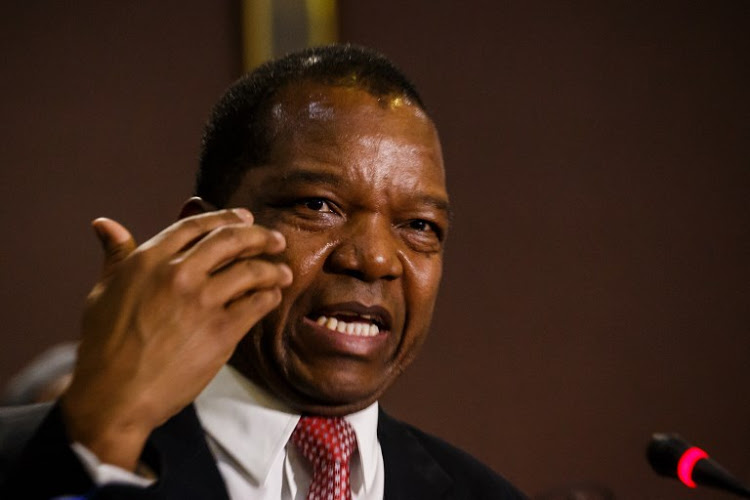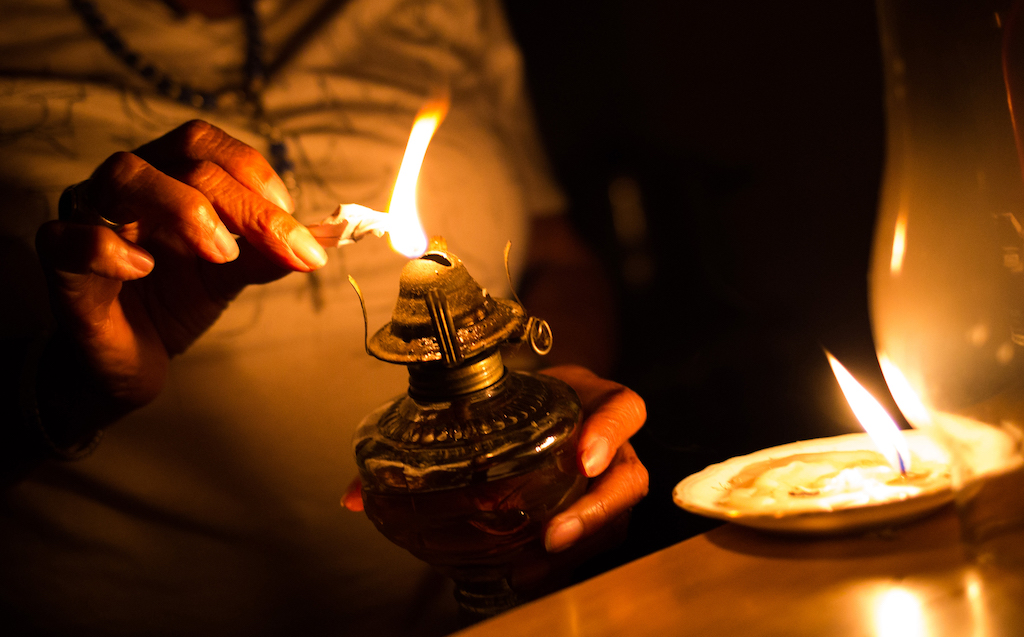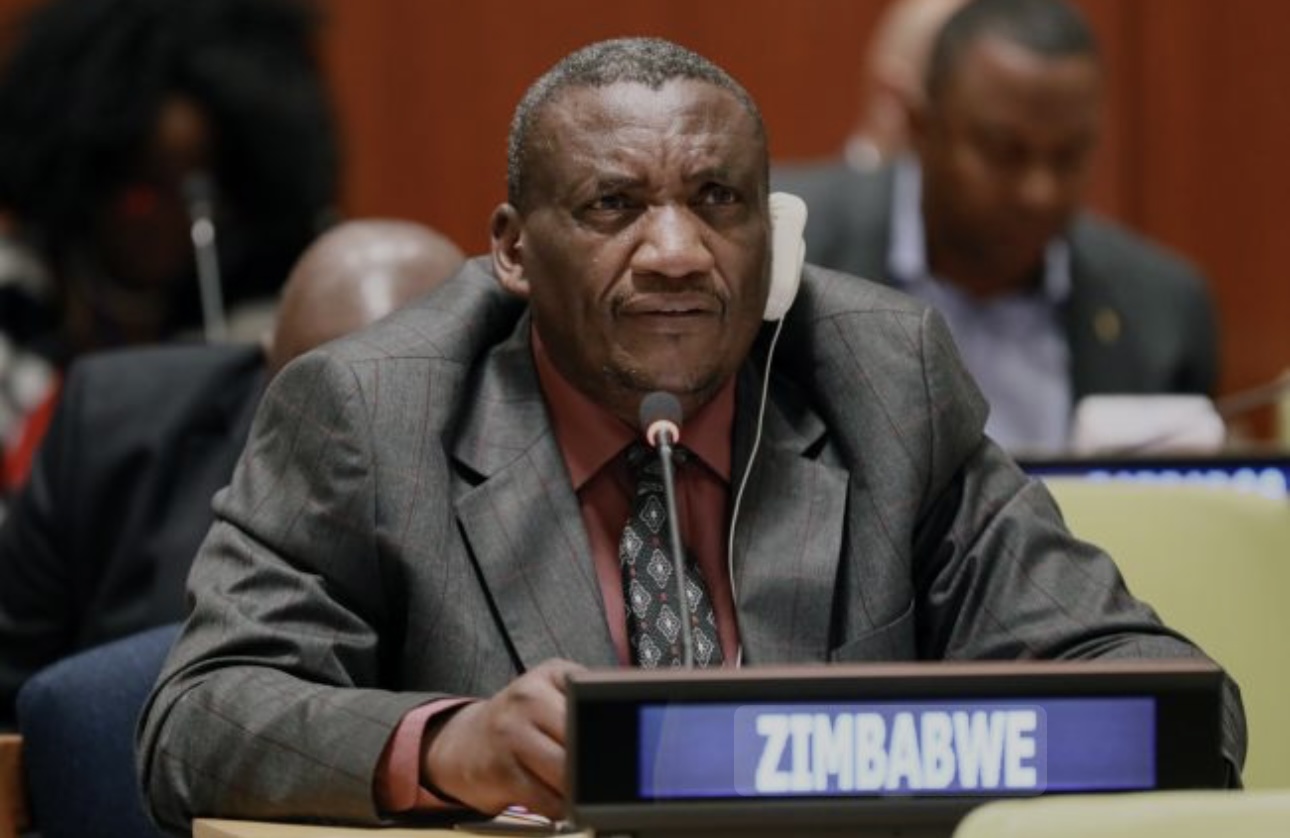HARARE – The Reserve Bank of Zimbabwe says it is concerned and disturbed by “sensationally wild, false and malicious’ media reports”, carried in snippets of an unscreened Al Jazeera documentary, produced by the network’s Investigative Unit.
In a statement, the RBZ said snippets of the documentary that were already circulating online were “purveying the impression that the bank is southern Africa’s laundromat or southern Africa’s laundry service for an alleged African gold mafia involved in illicit gold dealings, corruption and money laundering.”
RBZ governor John Mangudya said the snippets cited a few boastful and name-dropping individuals, who neither work for nor represent the bank in any capacity, as sources of the allegations.
“The outrageous reports quote one of the cited individuals as boasting that he has diplomatic cover to ‘fly dirty cash into Zimbabwe where it can be laundered through gold and other investments,” Mangudya said.
“Another individual is reported to have asserted that ‘there is an opportunity, a hell of a big opportunity to wash money here [in Zimbabwe]’.”
Mandudya said, yet another “self-serving” claim is that one individual bragged that his phone “is on speed dial” with the Bank’s Governor.
“These are all false and malicious allegations. It is unbelievable that such bizarre claims, allegedly made by private individuals who have no relationship with the Bank whatsoever, have been elevated to gospel truths and published with reckless abandon,” he charged,
“ It is particularly strange that the reports claim that ‘through the bank, government is using illicit ways as a scheme to bust international sanctions placed on political leaders and government entities.
“The bank is not a sanctioned entity, and the cited individuals are not sanctioned persons either.
“There are no sanctions on Zimbabwean exports and imports, including trade in gold, to warrant Zimbabwe to ‘circumvent international sanctions’ through illicit trade in gold.
“As such, the claim that there is ‘a scheme to bust international sanctions using illicit ways’ shows beyond doubt that the peddlers of this narrative have a sinister agenda with nefarious objectives of tarnishing both the Bank and the Republic of Zimbabwe.”
Mangudya said it is also disturbing that the “scurrilous allegations have largely been widely and recklessly reported by a well-known and outspoken social media activist, elements of the local media and Zimbabwean-linked digital media platforms, who are closer to home to take responsibility by independently verifying the damaging and unproven allegations before publishing or peddling them.”
He said it is disappointing and deplorable that Zimbabweans are at the forefront of spreading malicious falsehoods about the Bank and the country.
“Curiously, the leaked snippets of the unscreened documentary omit the bank’s responses to 32 questions Al Jazeera Investigative Unit posed to the bank in connection with the allegations,” Mangudya added.
“In the spirit of transparency and social responsibility, the bank responded to all the 32 questions in detail on 27 February 2023 and the responses clearly show that the narrative, so far purveyed, is nothing but false.
“The bank is disappointed that either Al Jazeera Investigative Unit has not included the bank’s responses in the information they have leaked to or shared with their selected media houses and journalists, or the concerned journalists have elected to ignore the bank’s responses and only published the fake allegations in a malicious pursuit of a hidden agenda, unknown to the bank or Al Jazeera.
“ The bank reserves its rights to take appropriate legal action or initiate necessary sanctions against the interviewees and purveyors of the fake news to protect its fiduciary responsibilities in the national interests.”
He said the public should dismiss the “false allegations with the contempt they deserve.
The bank remains confident that the truth cannot be hidden, and that the truth shall prevail.”
Al Jazeera has not yet responded to the RBZ governor’s remarks. – VOA

 Slider3 years ago
Slider3 years ago
 National4 years ago
National4 years ago
 Tourism and Environment4 years ago
Tourism and Environment4 years ago
 Opinion4 years ago
Opinion4 years ago
 Special reports4 years ago
Special reports4 years ago
 National4 years ago
National4 years ago
 National3 years ago
National3 years ago
 National3 years ago
National3 years ago



